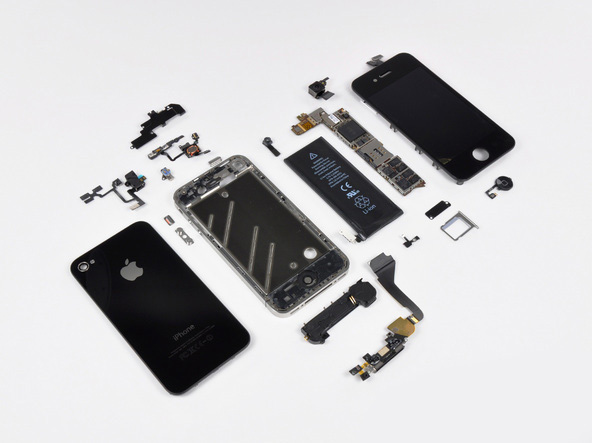The Global Debit Card Market size was estimated at USD 95.73 billion in 2022 and is expected to hit around USD 127.17 billion by 2031, poised to grow at a compound annual growth rate (CAGR) of 3.39% from 2022 to 2031.
The landscape of financial services has witnessed a transformative wave with the evolution of the global debit card market. Debit cards have become an integral part of everyday transactions, offering individuals and businesses a convenient and efficient means of accessing funds and making purchases. The market encompasses a diverse array of debit card solutions, each designed to streamline financial transactions, enhance security, and provide users with a seamless payment experience.
In recent years, the demand for debit cards has surged, driven by the increasing preference for cashless transactions, online shopping, and digital payments. The global debit card market plays a pivotal role in facilitating financial inclusion, enabling individuals from various socio-economic backgrounds to participate in the modern economy. As digital payment ecosystems continue to expand, debit cards serve as a bridge between traditional banking and the rapidly evolving landscape of fintech innovations.
The rise of contactless payments is a notable trend shaping the global debit card market. With technological advancements, contactless debit cards have gained popularity, allowing users to make swift and secure transactions by simply tapping their cards on payment terminals. This trend aligns with the changing consumer preferences for quick and hassle-free payment methods, driving the adoption of contactless technology in debit card solutions.
Security remains a paramount concern in the debit card market, and advancements in fraud prevention and authentication technologies have become crucial. Debit card issuers are incorporating robust security features such as biometric authentication, multi-factor authentication, and real-time transaction monitoring to safeguard users against unauthorized access and fraudulent activities. The market has witnessed a paradigm shift towards enhancing the overall security infrastructure to instill confidence in users and maintain the integrity of financial transactions.
The global debit card market is also witnessing a surge in innovative partnerships and collaborations. Financial institutions, payment processors, and fintech companies are joining forces to create synergies that bring about new and enhanced debit card offerings. These collaborations aim to leverage the strengths of each partner, fostering innovation in terms of features, rewards programs, and value-added services associated with debit card usage.
Furthermore, the market is experiencing a shift towards personalized and customizable debit card solutions. Consumers are seeking debit cards that align with their lifestyle, preferences, and financial goals. Card issuers are responding to this demand by offering customizable designs, rewards programs tailored to specific spending patterns, and financial management tools integrated into debit card apps. This trend underscores the industry’s commitment to enhancing user experience and meeting the diverse needs of a broad customer base.
Recent Developments:
Recent developments in the global debit card market include the integration of advanced analytics and artificial intelligence (AI) capabilities. Debit card providers are leveraging AI to analyze transaction data, detect patterns, and offer personalized insights to users. Machine learning algorithms contribute to the continuous improvement of fraud detection mechanisms, making debit card transactions more secure and reliable.
Another noteworthy trend is the emphasis on sustainable and eco-friendly debit card solutions. As environmental awareness grows, consumers are seeking financial products that align with their values. Debit card issuers are responding by introducing cards made from recycled materials, implementing carbon offset programs, and promoting eco-friendly initiatives. This shift reflects a broader commitment to corporate social responsibility within the financial industry.
In conclusion, the global debit card market is undergoing a dynamic transformation driven by technological advancements, changing consumer preferences, and a focus on security and sustainability. The market’s evolution is characterized by innovations in contactless technology, heightened security measures, strategic collaborations, personalized offerings, and the integration of advanced analytics and AI capabilities. As the financial landscape continues to evolve, the global debit card market is poised to play a central role in shaping the future of digital payments and financial inclusion.
The Evolution of Debit Cards: Debit cards have evolved from simple payment instruments to multifaceted financial tools, seamlessly integrating with digital banking platforms and offering a wide range of features and benefits. Initially introduced as an alternative to cash and checks, debit cards have since become indispensable for everyday transactions, online shopping, and international travel, fostering financial inclusion and enhancing economic participation.
Market Size and Share: The global debit card market has witnessed significant expansion in recent years, driven by factors such as increasing consumer adoption, rising e-commerce penetration, and regulatory initiatives promoting electronic payments. While precise data on market size and share may vary, industry reports indicate robust growth across regions, with leading players vying for market dominance and innovation driving market differentiation.
Click For Report : https://organicmarketresearch.com/global-debit-card-market
Key Trends Shaping the Market: Several trends are shaping the landscape of the global debit card market:
- Contactless Payments: The proliferation of contactless technology has revolutionized the way consumers make payments, offering speed, convenience, and enhanced security. Contactless debit cards, enabled with near-field communication (NFC) technology, are gaining popularity, especially in urban centers and technologically advanced markets.
- Mobile Wallet Integration: The integration of debit cards with mobile wallet platforms such as Apple Pay, Google Pay, and Samsung Pay is blurring the lines between physical and digital payments. This convergence allows users to seamlessly manage their finances, track transactions, and enjoy enhanced security features on their mobile devices.
- Focus on Security: With the rising threat of cybercrime and data breaches, security remains a top priority for consumers and financial institutions alike. Debit card issuers are implementing advanced security measures such as EMV chip technology, tokenization, and biometric authentication to safeguard transactions and instill confidence among cardholders.
- Personalization and Rewards: To differentiate their offerings and attract customers, debit card issuers are increasingly incorporating personalized features and rewards programs. From cashback incentives to travel perks and lifestyle benefits, these value-added services enhance the overall cardholder experience and drive customer loyalty.
Challenges and Opportunities: Despite its widespread adoption and growth prospects, the global debit card market faces certain challenges, including regulatory compliance, competition from alternative payment methods, and evolving consumer preferences. However, these challenges also present opportunities for innovation, market expansion, and strategic partnerships to address emerging trends and capitalize on untapped markets.
Future Outlook: The future of the global debit card market is characterized by continued innovation, collaboration, and adaptation to evolving consumer needs and technological advancements. As digitalization reshapes the financial landscape and consumer behavior, debit cards are poised to remain a cornerstone of electronic payments, facilitating seamless, secure, and efficient transactions across borders and channels.
Conclusion: The global debit card market is a dynamic and evolving ecosystem, driven by technological innovation, changing consumer preferences, and regulatory initiatives aimed at promoting financial inclusion and digitalization. As debit cards continue to play a pivotal role in the transition towards cashless economies, industry stakeholders must remain vigilant, agile, and customer-centric to navigate the complexities of the modern financial landscape and unlock new opportunities for growth and prosperity.
Contact Us:
Mob : +91 9319642100
Noida One Tower Sec 62 Noida 201301
Sales : sales@organicmarketresearch.com
Website : https://www.organicmarketresearch.com














